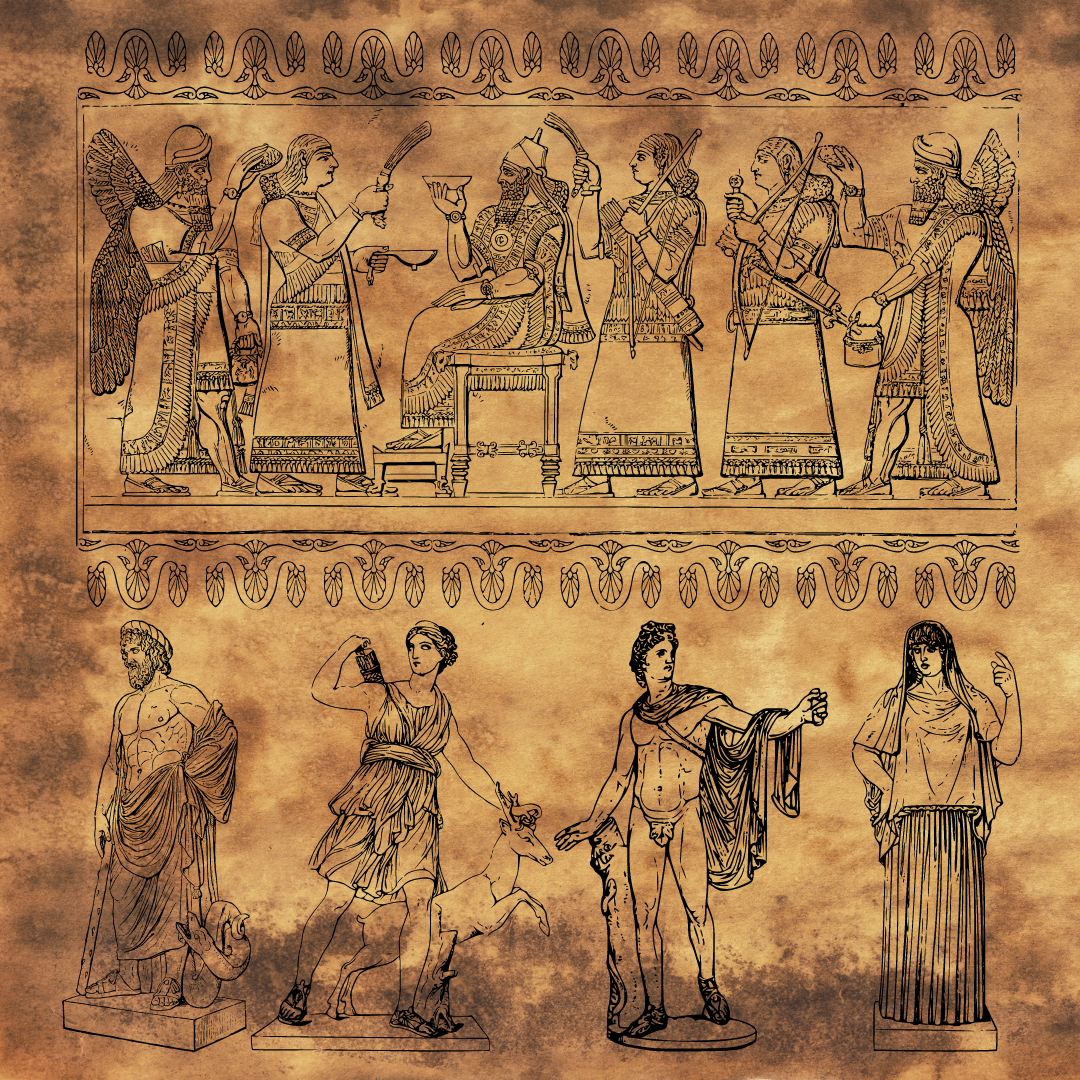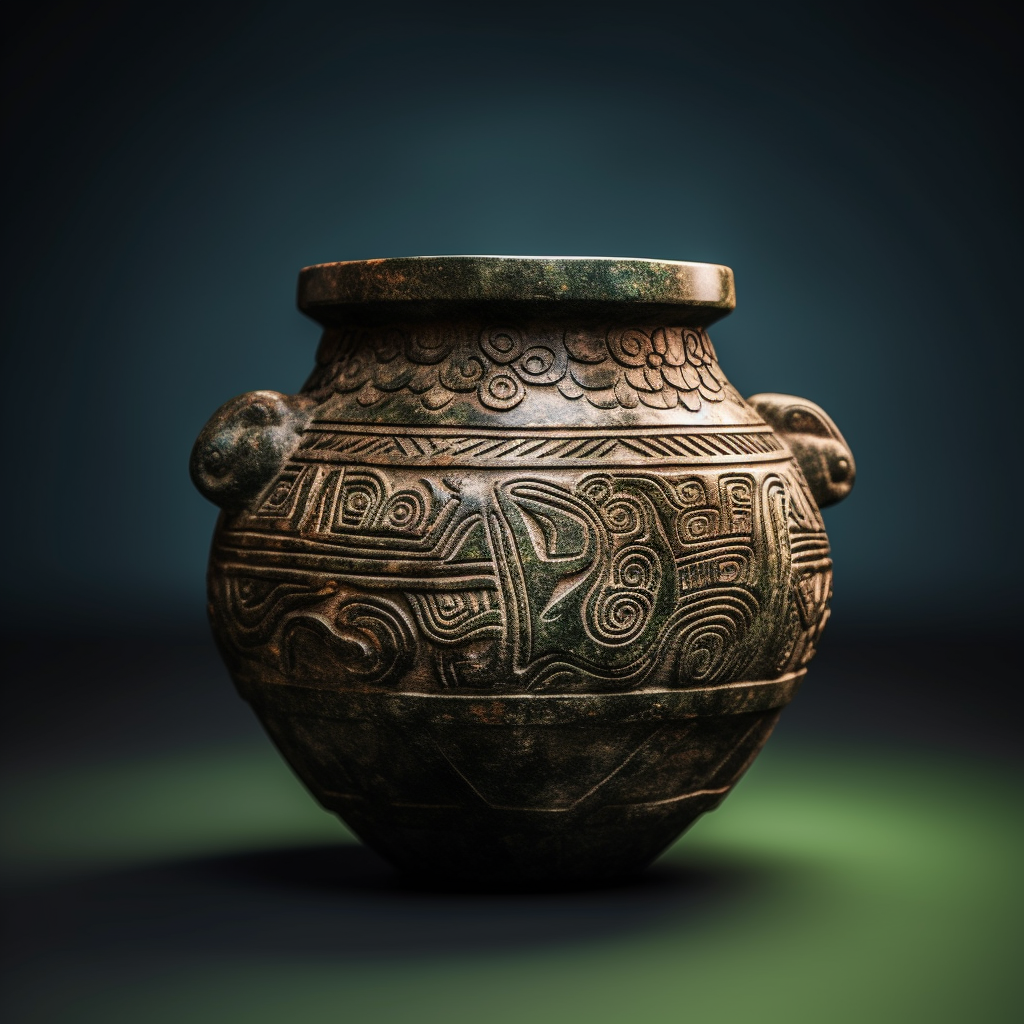Ancient
Definition
Ancient is an adjective and a noun. As an adjective, it describes something that is very old or has existed for a long time, typically dating back to early history. As a noun, it refers to people or objects from ancient times.
Parts of Speech
- Adjective
- Noun
Pronunciation
American English
- IPA Pronunciation: /ˈeɪnʃənt/
- Respelling: AYNSH-uhnt
British English
- IPA Pronunciation: /ˈeɪnʃənt/
- Respelling: AYNSH-uhnt
Etymology
The word "ancient" originates from the Latin "antiquus," meaning "old" or "former," which evolved into Old French as "ancien." It entered Middle English in the 14th century, signifying something of great age or belonging to earlier times.
Derivatives
- Anciently (adverb)
- Ancientness (noun)
- Antiquity (noun)
- Ancestorial (adjective)
- Ancestor (noun)
Synonyms
- Old
- Antique
- Historical
Antonyms
- Modern
- Contemporary
- New
Usage
The term "ancient" is used to refer to something or someone from early history or that has existed for an extended period. For example, "The ancient ruins are a popular tourist attraction," or "He studied the writings of ancient philosophers."
Related Terms
- Antiquity: The ancient past, especially the period before the Middle Ages.
- Ancestor: A person from whom one is descended, typically from an older era.
- Archaic: Very old or old-fashioned.
Detailed Definitions
Adjective
- Very old; belonging to the distant past: Refers to something that dates back many years or centuries, often to early civilizations.
- Example: "The ancient manuscripts were preserved in the library."
- Relating to early history or civilizations: Describes something associated with early periods, such as the Roman, Egyptian, or Greek civilizations.
- Example: "They uncovered artifacts from ancient Egypt."
Noun
- A person or object from ancient times: Refers to individuals or items that existed in the distant past.
- Example: "The museum displayed relics from the ancients."
ancient



🇨🇳 Mandarin (Simplified Chinese)
- 古老 (gǔlǎo)
- IPA Pronunciation: /ku̯ǒ.lɑ̌ʊ̯/
- English Respelling: gwo-lao
- 古代 (gǔdài)
- IPA Pronunciation: /ku̯ǒ.ta̯i̯/
- English Respelling: gwo-dye
🇮🇳 Hindi
- प्राचीन (prācīna)
- IPA Pronunciation: /pɾɑːtʃiːn/
- English Respelling: pra-cheen
- पुराना (purānā)
- IPA Pronunciation: /puːɾɑːnɑː/
- English Respelling: poo-raa-naa
🇪🇸 Spanish
- antiguo
- IPA Pronunciation: /anˈtiɣwo/
- English Respelling: an-TEE-gwo
- arcaico
- IPA Pronunciation: /arˈkaiko/
- English Respelling: ar-KAI-ko
🇫🇷 French
- ancien
- IPA Pronunciation: /ɑ̃.sjɛ̃/
- English Respelling: ahn-syen
- antique
- IPA Pronunciation: /ɑ̃.tik/
- English Respelling: ahn-teek
🇸🇦 Modern Standard Arabic
- قديم (qadīm)
- IPA Pronunciation: /qaˈdiːm/
- English Respelling: qa-deem
- أثري (athari)
- IPA Pronunciation: /aθaːriː/
- English Respelling: atha-ree
🇧🇩 Bengali
- প্রাচীন (prācīna)
- IPA Pronunciation: /pɹaːtʃiːn/
- English Respelling: pra-cheen
- পুরাতন (purātana)
- IPA Pronunciation: /puraːt̪an/
- English Respelling: poo-raa-tan
🇷🇺 Russian
- древний (drevniy)
- IPA Pronunciation: /ˈdrʲevnʲɪj/
- English Respelling: drev-nee
- античный (antichnyy)
- IPA Pronunciation: /ɐnˈtʲitɕnɨj/
- English Respelling: an-teech-nee
🇵🇹 Portuguese
- antigo
- IPA Pronunciation: /ɐ̃ˈtiɣu/
- English Respelling: an-TEE-gu
- arcaico
- IPA Pronunciation: /aɾˈkajku/
- English Respelling: ar-KAI-ku
🇮🇩 Indonesian
- kuno
- IPA Pronunciation: /kuno/
- English Respelling: koo-no
- purba
- IPA Pronunciation: /purba/
- English Respelling: pur-ba
🇩🇪 German
- alt
- IPA Pronunciation: /alt/
- English Respelling: alt
- antik
- IPA Pronunciation: /ˈantiːk/
- English Respelling: an-teek
🇯🇵 Japanese
- 古代 (kodai)
- IPA Pronunciation: /ko̞d̪a̠i/
- English Respelling: ko-dai
- 古い (furui)
- IPA Pronunciation: /ɸɯᵝɾɯᵝi/
- English Respelling: fu-rui
🇻🇳 Vietnamese
- cổ
- IPA Pronunciation: /kə˧ˀ˨ʔ/
- English Respelling: kuh
- xưa
- IPA Pronunciation: /sɨə˧ˀ˨ʔ/
- English Respelling: suh
🇰🇷 Korean
- 고대의 (godaeui)
- IPA Pronunciation: /ko.dɛ̝.ɰi/
- English Respelling: go-deh-wee
- 오래된 (oraedoen)
- IPA Pronunciation: /o.ɾɛ̝.dwe̞n/
- English Respelling: oh-reh-dwen
🇹🇷 Turkish
- antik
- IPA Pronunciation: /anˈtic/
- English Respelling: an-tik
- eski
- IPA Pronunciation: /esˈci/
- English Respelling: es-kee
🇵🇰 Urdu
- قدیم (qadīm)
- IPA Pronunciation: /qəˈdiːm/
- English Respelling: qa-deem
- پرانا (purānā)
- IPA Pronunciation: /pʊˈrɑːnɑː/
- English Respelling: poo-raa-naa





